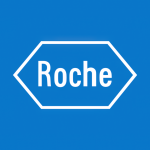Welcome to our dedicated page for Roche Hldg news (Ticker: RHHBY), a resource for investors and traders seeking the latest updates and insights on Roche Hldg stock.
Roche Holding Ltd/ADR (RHHBY) is linked to a stream of news that reflects the company’s activities in biotechnology, pharmaceuticals and diagnostics. Recent announcements from Roche and its U.S. affiliate Genentech highlight regulatory approvals, late‑stage clinical trial results, new diagnostic platforms and agreements related to access and manufacturing.
Investors and healthcare observers following RHHBY news will see updates on oncology and haematology programmes, such as the U.S. Food and Drug Administration’s accelerated approval of Lunsumio VELO, a subcutaneous CD20xCD3 bispecific antibody for relapsed or refractory follicular lymphoma after at least two prior lines of systemic therapy. News also covers Phase III data for the investigational oral SERD giredestrant in ER‑positive early‑stage breast cancer, as well as new data on Lunsumio combinations and long‑term outcomes in lymphomas presented at major scientific meetings.
On the diagnostics side, Roche has reported the U.S. launch of next‑generation cobas 6800/8800 systems and software upgrades, CE Mark approval for its cobas Mass Spec solution reagent pack for antibiotics drug monitoring, and CE Mark for the cobas BV/CV assay for bacterial vaginosis and candida vaginitis. These stories illustrate how the company is expanding its in‑vitro diagnostic menu and enhancing laboratory efficiency.
Additional news items include European Commission approval of Gazyva/Gazyvaro for lupus nephritis and Genentech’s agreement with the U.S. government addressing prescription drug costs and direct‑to‑patient programmes. For users of this page, the RHHBY news feed offers a central place to review such regulatory milestones, clinical trial readouts, product launches and policy‑related developments associated with Roche and the Roche Group.


